Alcohol Rehab In New Jersey
ADHD can be managed: see a healthcare provider from the comfort of your home to receive personalized treatment and an online Concerta prescription if deemed necessary.
- Healthcare experts specializing in ADHD
- Online medication management
- Personalized treatment plans
The medications listed on this website are provided for informational purposes only. Their inclusion does not guarantee that they will be prescribed to any individual, as treatment decisions are ultimately at the discretion of healthcare providers. This list is not exhaustive, and healthcare providers may prescribe other medications, including non-stimulant options, based on the patient’s unique health circumstances and needs.
ADHD (attention deficit hyperactivity disorder) is one of the most common neurodevelopmental disorders. While lack of focus is its most well-known manifestation, patients may also be less energetic, act impulsively more frequently, and be more disorganized compared to people without this condition.
When talking about ADHD medication, Concerta is among the most effective prescription medicines. Dive into this article to get an idea about Concerta and how to receive a prescription online.
What Is Concerta Used for?
ADHD (attention deficit hyperactivity disorder) is one of the most common neurodevelopmental disorders. While lack of focus is its most well-known manifestation, patients may also be less energetic, act impulsively more frequently, and be more disorganized compared to people without this condition.
When talking about ADHD medication, Concerta is among the most effective prescription medicines. Dive into this article to get an idea about Concerta and how to receive a prescription online.
What Is Concerta?
ADHD (attention deficit hyperactivity disorder) is one of the most common neurodevelopmental disorders. While lack of focus is its most well-known manifestation, patients may also be less energetic, act impulsively more frequently, and be more disorganized compared to people without this condition..
How Does Concerta Work in a Person With ADHD?
ADHD (attention deficit hyperactivity disorder) is one of the most common neurodevelopmental disorders. While lack of focus is its most well-known manifestation, patients may also be less energetic, act impulsively more frequently, and be more disorganized compared to people without this condition..
Can You Get Prescribed Concerta Online?
Telehealth has significantly simplified the process of obtaining medications, including Concerta. In order to get Concerta prescribed online, given it is a Schedule II medicine under DEA regulations, you must first consult with a licensed healthcare professional in person at least once. During this consultation, your clinician will thoroughly evaluate your symptoms and issue a referral to an online doctor.
ADHD (attention deficit hyperactivity disorder) is one of the most common neurodevelopmental disorders. While lack of focus is its most well-known manifestation, patients may also be less energetic, act impulsively more frequently, and be more disorganized compared to people without this condition..

Can You Get Prescribed Concerta Online?
ADHD (attention deficit hyperactivity disorder) is one of the most common neurodevelopmental disorders. While lack of focus is its most well-known manifestation, patients may also be less energetic, act impulsively more frequently, and be more disorganized compared to people without this condition..
Can You Get Prescribed Concerta Online?
ADHD (attention deficit hyperactivity disorder) is one of the most common neurodevelopmental disorders. While lack of focus is its most well-known manifestation, patients may also be less energetic, act impulsively more frequently, and be more disorganized compared to people without this condition.
When talking about ADHD medication, Concerta is among the most effective prescription medicines. Dive into this article to get an idea about Concerta and how to receive a prescription online.
How Does Concerta Work in a Person With ADHD?
ADHD (attention deficit hyperactivity disorder) is one of the most common neurodevelopmental disorders. While lack of focus is its most well-known manifestation, patients may also be less energetic, act impulsively more frequently, and be more disorganized compared to people without this condition.
When talking about ADHD medication, Concerta is among the most effective prescription medicines. Dive into this article to get an idea about Concerta and how to receive a prescription online.
How Does Concerta Work in a Person With ADHD?
ADHD (attention deficit hyperactivity disorder) is one of the most common neurodevelopmental disorders. While lack of focus is its most well-known manifestation, patients may also be less energetic, act impulsively more frequently, and be more disorganized compared to people without this condition.
When talking about ADHD medication, Concerta is among the most effective prescription medicines. Dive into this article to get an idea about Concerta and how to receive a prescription online.
How Does Concerta Work in a Person With ADHD?
ADHD (attention deficit hyperactivity disorder) is one of the most common neurodevelopmental disorders. While lack of focus is its most well-known manifestation, patients may also be less energetic, act impulsively more frequently, and be more disorganized compared to people without this condition.
When talking about ADHD medication, Concerta is among the most effective prescription medicines. Dive into this article to get an idea about Concerta and how to receive a prescription online.
FAQ
A qualified healthcare professional can choose the best alternative to Concerta based on individual health circumstances. Common alternatives may include other methylphenidate medications like Ritalin or Daytarana, other stimulants such as Adderall (amphetamine/dextroamphetamine), Focalin (dexmethylphenidate), Vyvanse (lisdexamfetamine), or non-stimulant medications like Strattera (atomoxetine) or Intuniv (guanfacine).

Written By:
Wafaa Amjad Dar

Reviewer:
Dr Vadely Non








